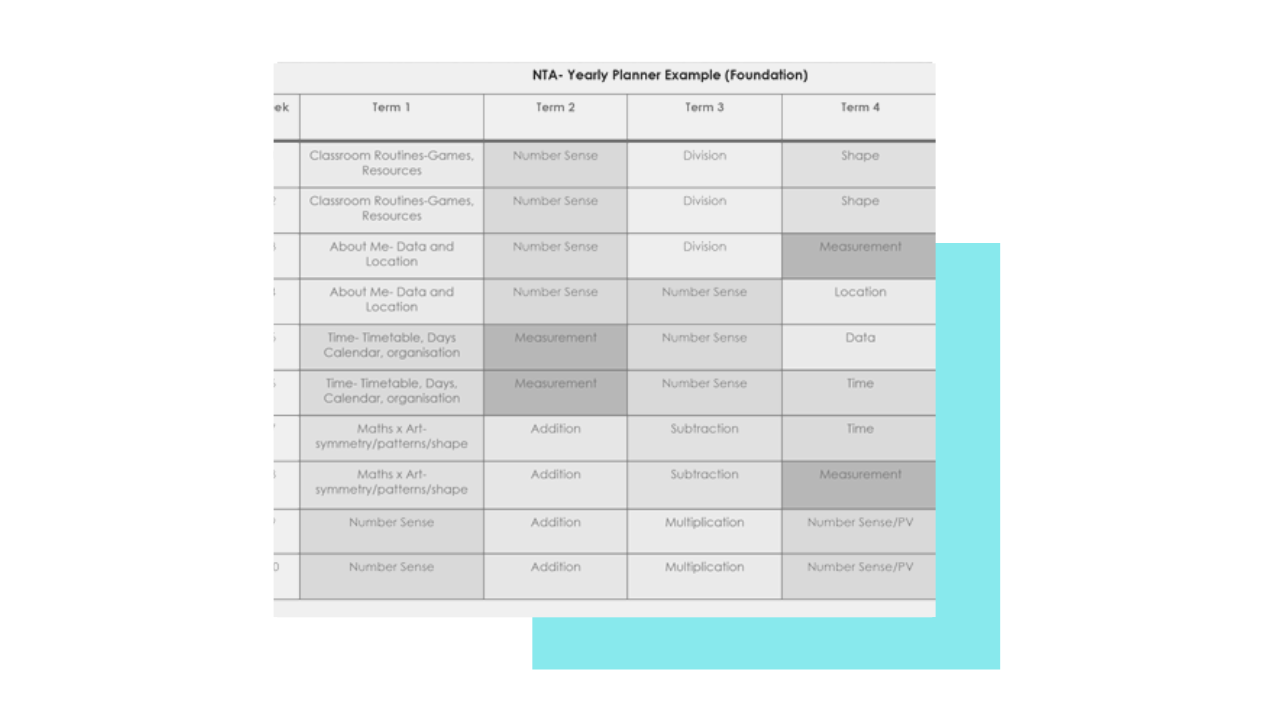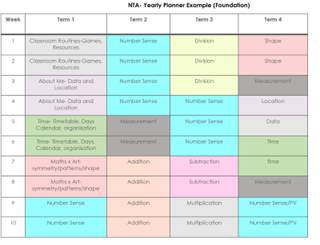The Special Case
Oct 04, 2022
Last week I looked at developing your yearly overview in Years 1-6. I mentioned that there were several things I consider when developing these plans with my teams. Many of these considerations also relate to the Foundation year, but I think that the first year of school is a ‘special case’ (in many ways not just planning!) and deserves a little further thought.
If you have ever taught Foundation, you know the beauty and struggles of this year level!
There are several topics that are (rightly so) not part of the Foundation Maths curriculum. For example, fractions is not covered.
I always remind teachers that the curriculum tells us what we need to assess, not what we need to teach. So, there are some things that are not in the curriculum, but I think they still should be covered in particular year levels. For example, multiplication is not mentioned in Foundation and Year One, but I think if we leave these concepts until Year 2 we are doing a disservice to our students. Multiplication concepts CAN and should be introduced, but they are just not assessed until Year 2. Having said that, I would not feel the need to introduce fractions in Foundation. I would leave that until Year One (Fun Fact: fractions are not mentioned until Year 2 in the new Australian Curriculum Version 9.0)!
So, what does a Foundation Planner look like?
Well, this is a sample I created for my NTA members. It is not meant to be the final copy, but more a starting point to initiate discussions at your school.
There are a few features I would like to run you through so you understand the thinking behind my decision making- and believe me there is a lot of thinking that goes into creating these documents.

As you can see, in Term One we begin with two weeks of introducing the students to the classroom routines and teaching them some of the games we will play throughout the year. These are short sharp sessions. One day I might get all the pattern blocks out and allow them to play with them. The next I might get the dominoes out and see what they do with them. It is very open-ended and play-based. I teach them games like 'Snap' and 'Go Fish' and 'Snakes and Ladders' and 'Tenzi'.
Then, in the next block we focus on ‘About me’.
So, we complete maths activities that are directly related to the students.
We get them to create simple graphs (favourite colour etc), count the steps to the toilet, discuss how to get to the office from our classroom. You can do some great location and data activities here.
I also suggest spending some time discussing your class timetable (recess, lunch, specialist classes etc), discussing the yearly calendar, putting in each child's birthday, setting up your reward point system, developing a routine for counting the days (in preparation for 100 days of school)- basically this part of the term is locking in all the simple systems where maths intersects with classroom organisation.
Week 7 and 8 is looking at maths through the lens of art. So, getting them to make patterns, look at symmetry, shape etc.
Finally, we 'formally' start some number sense at the end of Term One- lots of subitising, comparing, ordering, part-part-whole, counting, finger patterns, one more, one less. Slow, Steady, Repetition is the key here!
This flows into Term 2, where Number Sense is the major focus for most of Term 2 and 3.
Term 4 is more about measurement, time, shape concepts and I always like to finish the year off with some foundational work on introducing place value, in preparation for this concept in Year 1.
BTW, don’t feel you have to do an hour long Numeracy session with Foundation students. Things take MUCH longer in Foundation. Sometimes a 10 minute game provides more value than a worksheet which takes them an hour, because they have to cut and colour and stick things in their book. Play lots of games.
One of the first things I do with Foundation students is check if they know the dice patterns- if they don’t I send home a game of Snakes and Ladders or recommend they download the Tenzi App and ask them to play before school/at home.
As you can see, I believe Foundation should look a little different to the yearly planners we have in Year 1-6 in Numeracy. Foundation truly is a 'special case' :)
Again, this blog isn't meant to be sharing the 'gold' standard of Foundation planners. It is just a jumping off point for you and your team. Take the ideas you like, discard those you don't think will work. My hope is it saves you some time, affirms what you are doing or simply gives you a 'starting point'!
P.S can you believe we will be having Foundation orientation sessions starting soon- this year has flown!
P.P.S. From the 25-30th of October I will be opening enrolments for another intake in my Numeracy Teachers Academy. If you are interested in joining the waitlist and being the first to know when I open my next intake of teachers, leaders and schools click here.

